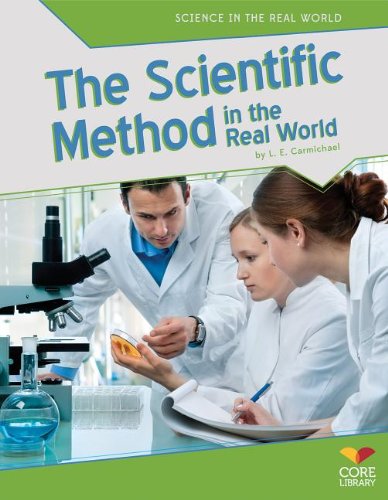It’s the most, wonderful tiiiiiime of the year – at least, if you’re a science person! It’s Science Literacy Week!
If you’re not familiar, Science Literacy Week is an annual, national celebration of all things science. Universities, libraries, and other organizations all across Canada are offering FREE STEM EVENTS for all ages. Hop on over to the Science Literacy Week website to find out what’s happening near you.
Are you back? Excellent, because I’m about to do my part for the cause and talk a little bit about what science is.
Picture it: Edmonton, 2004.*
We were nearing the end of my PhD candidacy exam, a gruelling, three-hour trial-by-fire in which innocent young graduate students are locked in a room with four to six experienced professional scientists who are rapid-firing questions and awaiting oral answers. They don’t tell you what topics will be covered in advance, making preparation both frantic and almost impossible. And I suspect that the goal of the event is less about testing your qualifications and more about to see how long you can go before nerves and exhaustion cause you to resort to answering “I have no idea” over and over again.
I had pretty much reached that point when Ian Stirling, venerable father of polar bear research in Canada, asked me if I thought it was a problem that my research methods didn’t follow the scientific method.
If it’s been a while and you need a refresher, the scientific method consists of these basic steps:
- observe – get some data
- explain – come up with a hypothesis that explains your observations
- experiment – to test your hypothesis
- share your results
 I wrote a whole book about these steps, but that was later. Back to our story:
I wrote a whole book about these steps, but that was later. Back to our story:
Out of reflex, I started to give the answer I thought Ian was expecting: “Well, obviously it’s better if when it does–”
Ian pounced. “Is it?” he asked, a gleam in his eye.
I had nothing, so I stared at him.
“Someone once told me,” he said, “that science is the description of the natural world. That’s it.”
I sat back in my chair, mind blown.
Because that’s all science is: a way of describing and understanding the world around us. Sometimes those descriptions can be tested with experiments, and sometimes they can’t: sometimes, they can only be tested by paying very close attention to the world, and trusting that, if you do so long enough, patterns will reveal themselves.
That’s how I ultimately earned my PhD – by gathering a gigantic mountain of data about wolves and arctic foxes and staring at it until the patterns became clear. That worked for Darwin, too.
This Science Literacy Week, I invite you to gather your own data in search of truth. Do an experiment, if that’s the type of science you love. If it’s not?
Go outside.
Pay attention.
Get curious.
Wonder.
Don’t forget to come back and share what you learn.
*Bear with me, I’ve been streaming a lot of Golden Girls. #SophiaForever
Recently I read a very interesting book Woman Watching about Louise de Kiriline Lawrence by Merilyn Simonds. I think you’d enjoy it.
https://merilynsimonds.com/woman-watching.html
Ooh, it sounds amazing – thanks for the tip!